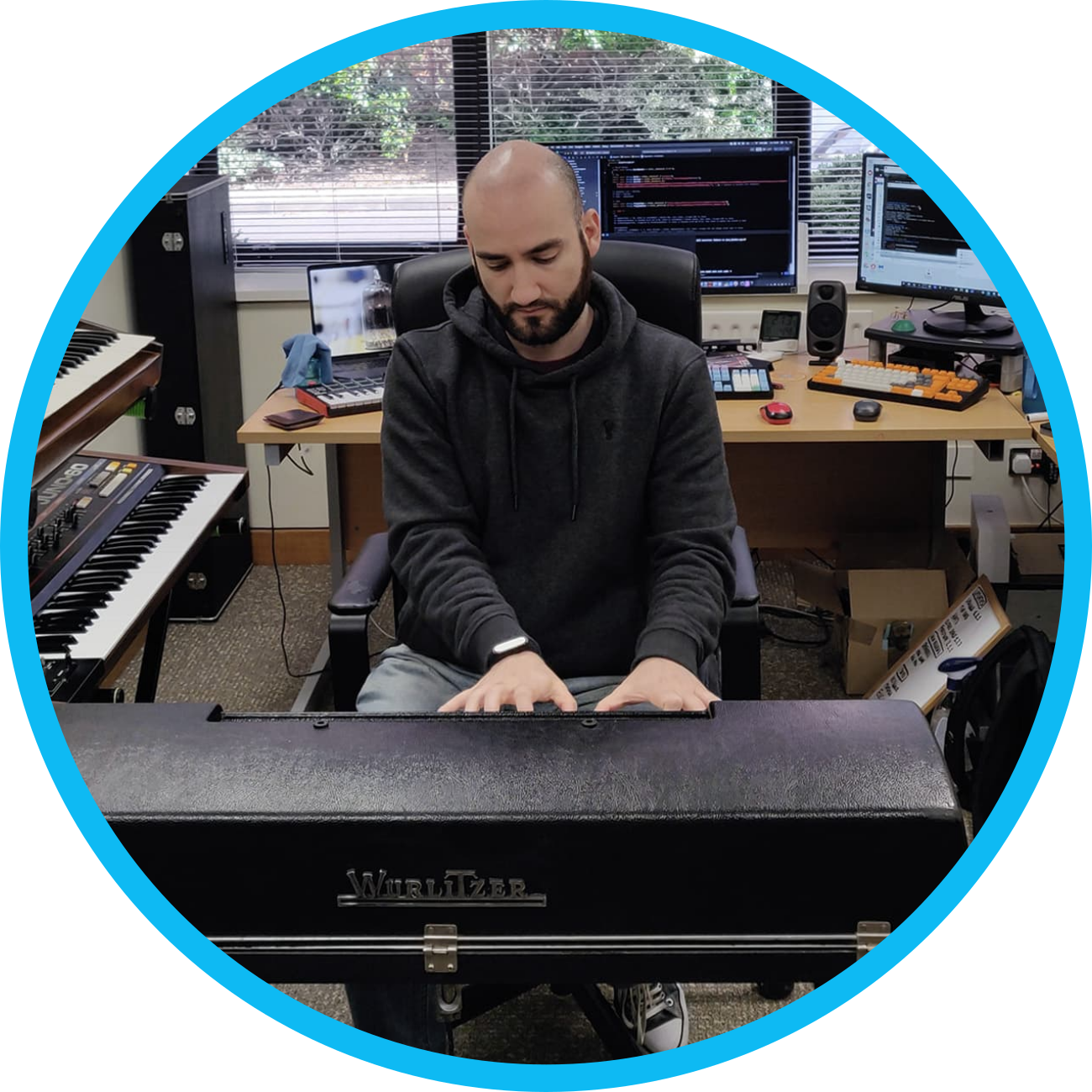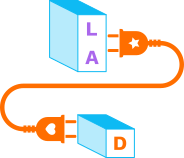Linux Audio Development (LAD)
AudioThing
Interview with Carlo Castellano from AudioThing
This interview was conducted by Amadeus Paulussen in 2025.

Dear Carlo, for a good while now, your plugins have been among my favorites on Linux, alongside those from Audio Damage, Sinevibes, TAL and u-he. Does the fact that you support Linux has a certain significance for you personally and AudioThing as a company?
Thanks! Personally, I’m not much of a Linux user, but porting our plugins to Linux was a valuable process. It forced us to refactor a lot of our internal framework, which ended up helping performance across all platforms and made the iOS port smoother too. So while Linux support wasn’t initially a priority, it became a meaningful step for the overall quality and portability of our plugins.
What would you say are the biggest pain points when developing plugins in general?
Plugin development is a mix of art and engineering, but for us, the real challenge is UX and graphics. We actually spend more time on layout and user experience than on DSP. You can have an amazing-sounding plugin, but if the user experience is poor, it’s not going to work. Making sure the interface is intuitive, fun, and visually clear is what takes the most time and energy.
And what are the biggest pain points in relation to developing plugins for Linux specifically?
The variety of Linux distros and configurations makes it hard to provide full support. We can’t realistically install and test on every combination of system, host, and desktop environment. That’s why we rely a lot on our Discord community; they help each other troubleshoot and provide feedback. If you want to support Linux, you’ll need a strong group of beta testers to help you figure out the best approach.
As a well-renowned vendor with strong brand recognition, have you ever considered going Open Source?
No, that wouldn’t make sense for us. We’re a commercial company, and this is how we make a living. Open Source is great in many contexts, but not for a business like ours. We need to protect our work and keep our tools sustainable long term.
Do you ever exchange knowledge with other plugin vendors?
Yes, when possible. It’s always helpful to compare notes and share tips, especially around weird DAW behaviors or tech quirks. The audio plugin world is fairly small, and it’s nice to support each other when we can.
Can you share with us what other plugin vendors you admire and/or look up to?
Luca from Audiority is a friend and someone I respect a lot. Same with Artemy from Sinevibes, both are doing fantastic work with their own unique styles. There are many others I admire, but to be honest, I try to stay focused on doing my own thing rather than looking up to anyone else. That keeps the creative process more personal.
How would you rank the following factors in your workflow when creating new plugins? UI, UX, code efficiency/elegance, sonic character, marketing.
DSP/audio quality comes first, always. But UX and layout are where most of the actual work goes. The user experience is the most important thing, and we spend a lot of time making sure everything feels right. Personally, I’m also a bit obsessive about clean code; even if it doesn’t make a difference to the end user, I like everything to be tidy and consistent. We don't spend much on marketing anymore.
Do you have an opinion on GPU audio?
As it stands now, I think GPU audio is mostly pointless. Most typical DSP tasks can't be parallelized, and adding a GPU dependency creates more problems than it solves. It could be interesting in the context of machine learning or other very specific workloads, but for everyday plugin work, I don’t see the benefit.
Are you using JUCE to develop your plugins, and do you think that there are good alternatives to JUCE?
Yes, we use JUCE. At the moment, there aren’t really any strong alternatives that offer the same level of cross-platform support. That’s a bit of a concern, to be honest, but JUCE is still the most viable choice for what we do.
Do you have any advice for vendors who are looking into offering their plugins for Linux?
Get testers. That’s the only way. There are so many distros and edge cases; you need real users on real systems helping you identify issues. Don’t expect to support everything; focus on the most common setups and build from there.
Does customer support take up a large part of your resources?
Support takes time, yes, but we try to keep things as smooth as possible with good documentation and community support. Again, our Discord community is super helpful, not just for Linux but in general. That takes a bit of the load off our hands.
Are you afraid that with the rising popularity of Linux, you could see an increase in Linux specific support requests?
We already do. That’s why we make it clear that Linux support is limited. We just can’t guarantee perfect compatibility across every distro and host. That said, we’ll continue doing what we can, and the community support really helps fill in the gaps.
If you had the power to change some rules of audio plugin development and the audio plugin industry, what would you change?
Drop all formats and move all DAW to support CLAP, that’s it. It would simplify a lot of things if everyone adopted it.
Do you have an opinion on copy protection systems such as iLok? And what do you think about the fact that when some vendors go out of business, users will no longer be able to authenticate their plugins due to then defunct copy protection mechanisms such as challenge response systems?
As you can see on our site, we really don’t like iLok or dongles. As a user, I always found them frustrating. As a developer, they’re even worse; I have to carry one around when I travel just to build or test something, and another one is permanently attached to the Windows build PC in the studio. It’s a cost to the developer, a hassle to the user, and for us, it's not worth it. We’ve invested in our own copy protection system that seems to work well; it supports both offline and online activation, and users are happy with it. That’s all we need.
We have recently had the pleasure of seeing some AudioThing instruments come out. Can you tell us what you have planned for the future?
Yes, after doing so many effects (maybe too many!), we’re shifting our focus more toward instruments, synths, drum machines, and more experimental stuff. One of the biggest projects we’re working on right now is our JUNO 60 emulation, which is shaping up really nicely. There are a few other instruments in development as well, and we’re excited to bring them to life.
